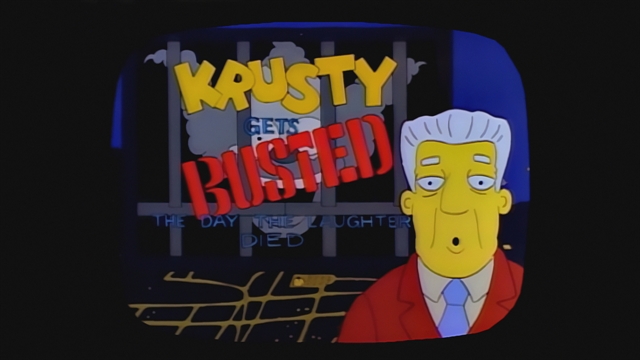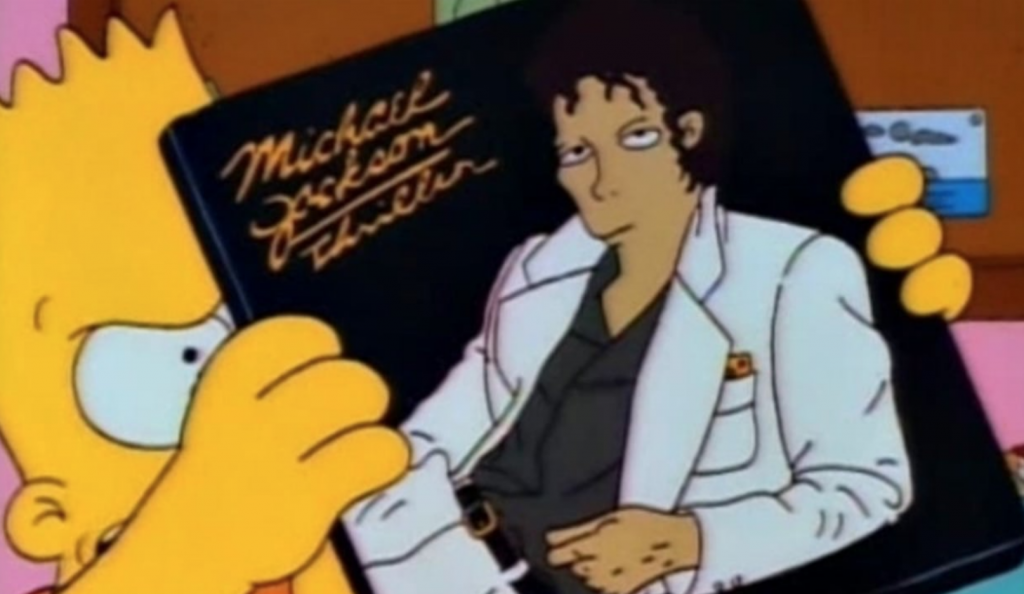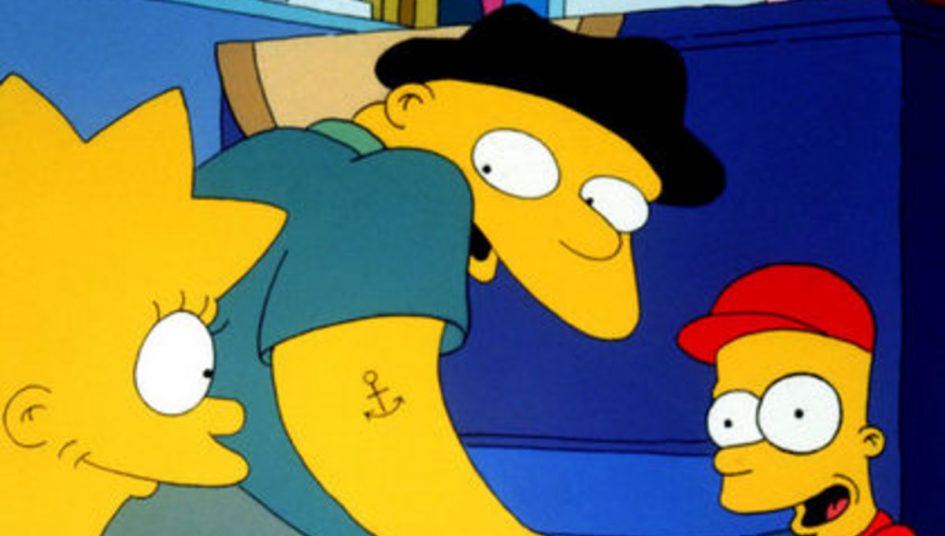As a long time Simpsons fan and semi professional global distributor of Simpson’s themed tic tacs (need to update my LinkedIn), I have mixed feelings about the recent decision concerning the famous Michael Jackson episode, officially known as “Stark Raving Dad.”
James L. Brooks, a name any diehard Simpsons fan will recognize, informed the Wall Street Journal that the Michael Jackson episode will be removed from DVD circulation and dropped from network syndication. The decision to pull the episode featuring the likeness of Michael Jackson was an apparent response to the 2019 documentary Leaving Neverland.
Reflecting on the Simpsons, I remember that as a child it was by far the coolest cartoon to watch. I still recall recording the famous Christmas episode on VHS. This was back when the characters weren’t fully developed yet and Smithers was still purple / black.
Here I sound like an old man, but back in 19 dickety 90, you had to wait for your favorite shows to appear on TV again if you missed them, making the ability to record an episode on VHS a godsend for a young kid.
Pushing Boundaries
Like any child, I was exposed to dozens of cartoons while growing up.The Simpsons was so unique because it wasn’t created purely for the sole consumption of children. Prior to The Simpsons, most cartoons had a boundary associated with them; certain things just couldn’t be said or done. I think The Simpsons was successful because it was the first mainstream cartoon to really shatter these previously established boundaries.
Over the course of time, this is essentially how art emerges and develops. Consider how The Simpsons paved the way for a new type of cartoon entertainment to emerge: The Ren & Stimpy Show, Beavis and Butthead, Family Guy and South Park. In one way or another, they all owe something to the producers of The Simpsons, for they were the first to usher in this new form of entertainment.
I wish to highlight this breaking of boundaries concept, as it’s something I’ll return to later in the article.
Krusty Gets Busted

The appeal of the Simpsons was also its ability to sprinkle adult themes (many of which went over my head) in a cartoon that on the surface was made for children. As an example, consider the “Krusty Gets Busted” episode, which explored several complex themes: medical conditions, ie Krusty’s pacemaker, criminal conspiracy, mob mentality, and redemption. As an adult I see it from a much different light than I did as a child. In both cases it was entertaining and enjoyable, which in my opinion is the definition of true art!
In a twist of irony, one scene from this episode involves the Reverend Lovejoy overseeing a burning of all Krusty the Klown related merchandise after the famous clown had been accused of robbing the Kwiki Mart. The idea being that now accused of a crime (although not yet found guilty), the namesake of Krusty the Klown should be wiped from Springfield: a cartoon example of the often irrational “groupthink” that are evident in mobs. I must give credit where it is due, for I picked up this tidit from a YouTuber named Tim Pool. After hearing his own thoughts on this subject, I wanted to throw in my own 2 cents as well, so thank you Tim for the idea.
The “Krusty Gets Busted” episode has always stood out in my mind for the very reason that it exposed the humanity of those who we hold in high esteem. Krusty was in poor health, having suffered a heart attack, he encouraged children to read yet had to admit in court he was illiterate, and his own ill treatment of his side kick ultimately led to his false accusation. Similar to many entertainers, his private life was a disaster and filled with obvious contradictions. Yet Bart looked up to the character he saw on screen, because something positive resonated with the character of Krusty, which is not to be confused with the private individual.
The Celebrity Accusation Dilemma
I feel the decision to pull the Michael Jackson episode appears to be giving in to the same “mob” forces that the original Simpsons creators mocked in their early episodes.
What’s difficult about the Michael Jackson case is that the defendant is not only deceased but has been for some time. If we are to follow the laws set forth in our country, namely innocent until proven guilty, we will never have an outcome.
As far as scandals go, I think there is a reason they often emerge after a serious amount of time has passed, the Bill Cosby case being an example. First, when someone is at the peak of their career, it is quite easy to brush off a scandal. One can simply defend themselves by saying that people are always after their hard earned money. They also have a lot of money, which buys them more legal power than the accuser would have at their disposal. So a victim may have to wait, either for a separate scandal to emerge or the personality to fall out of the limelight, only then could they get the proper attention they need.
Secondly, assuming its a case of multiple assaults, as in the Bill Cosby scandal, the victims need to join together, which is a feat unto itself. When several victims, from separate circumstances come out with accusations, the credibility of the accused starts to wane. This is the only way older cases can get any attention, mostly due to the fact that they are personal in nature. All of the accusations against Bill Cosby, for example, were of the “he said / she said” nature. It was only until the victims banded together that Cosby realized he was finally outnumbered and admitted guilt.
Unlike the Bill Cosby case, the supposed victims of Michael Jackson’s abuse don’t have this advantage since he’s no longer living. Unfortunately, we’ll never really know what happened for this very reason.
Despite the lack of Internet in the early 90s, everyone knew that Michael Jackson was eccentric, especially those who were old enough to see his rise to fame and transformation. You didn’t need the social media news cycles to point out that there was something odd about him. And some of these accusations did emerge and get media attention but I think Michael Jackson’s continued success at the time outweighed them in the scale of importance (harking back to my earlier point).
Let’s not forget that Michael was the ultimate pop icon, of the likes we may never see again since he truly dominated the limited mediums available at the time: television, radio, record/cassette/CD. We have to remember this when considering the time that the episode featuring Michael Jackson’s likeness was produced as it provides much needed context.
Art vs. The Individual

It’s my opinion that you can separate the personal from the art. We all wear masks, it’s part of being human. Do you behave the same way you do in front of your friends as you do in the workplace? What about with a loved one? To be very clear, this doesn’t justify bad behavior. My point is that the person you see on television, in a theater, or on stage is not the same individual in their private lives.
I’ll further explore this in another article, but there is nobody on the planet who is perfect. And in many cases, those who we consider heroes are far extremely flawed characters.
Let’s take Steve Jobs. It’s clear that he was not a kind boss to his staff, who he often belittled or outright berated. He had many personal issues as well that reflect poorly on his character. Yet I don’t see people throwing out their iPhones. What about The Beatles? John Lennon certainly did not live up to the words in “Let It Be”, yet should we now boycott all of their work?
Getting back to Bill Cosby, I was never a fan of The Cosby Show myself, but its worth mentioning that we often forget that the Huxtables were not a real family! They were all characters, acting on a studio set for an audience to consume. Yet, The Cosby Show was groundbreaking for its time. Consider how many, regardless of their race, were inspired by Bill Cosby’s success? Let’s also not forget the exampleThe Cosby Show set, that despite racial tension in America, a comedy show consisting of only black characters could be a massive success.
I wonder how many people took inspiration from The Cosby Show to lead a better life, or pursue a career in acting? Taking it back to Michael Jackson, how many potential artists did he inspire? How many has he even inspired after he’s no longer alive?
The point, which I’ll repeat, is that we’ll never know what really happened with Michael Jackson, it is now history. I have sympathy for those he allegedly victimized but don’t see how trying to scrub his achievements or re-write history would improve the outcome of the situation. In fact, trying to erase anything negative may lead to a similar situation happening in the future, which is all the more reason why this scandal should remain a part of his biography.
A Poor Decision by The Simpsons Creators
I think the decision to remove the Michael Jackson episode was unwise and betrays the spirit behind the Simpsons, namely that of pushing boundaries or put in another sense, not really caring what others think. Now this is not to justify anything Michael Jackson was accused of doing. Instead, nobody had a problem with the episode when it was aired, in fact it was one of the more notable episodes, and at the time Michael Jackson was quite popular, so why don’t we leave it that way?
This also sets a nasty precedent. What if it surfaces that Kelsey Grammar was a serial rapist? Should all episodes featuring Sideshow Bob be revised so that he is replaced by Sideshow Mel with a new voice, and subsequently a new character is invented to replace Sideshow Mel? Consider for a moment the Pandora’s Box that could be opened if we continue down this path of cherry picking the past.
The Simpsons were not the first and won’t be the last to mock pearl clutching, elitist over reaction and hypersensitivity. Even in other blog posts I write and among friends I often quote the famous line “Won’t somebody please think of the children?” By bowing to the very mob that The Simpsons creators had so much fun mocking, I feel they are giving up the rebel spirit that made the show such an entertaining experience and commercial success in the first place.

Leave a Reply